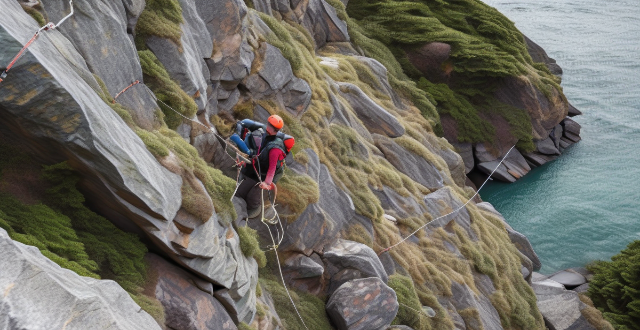Essential skills for mountain climbers include navigation and orienteering, rope work and knot tying, first aid and emergency response, fitness and endurance, and gear knowledge and maintenance. These skills help ensure the safety and enjoyment of the sport.

Essential Skills for Mountain Climbers
Mountain climbing is an exhilarating sport that requires physical fitness, mental strength, and a set of essential skills. Here are some of the most important skills every mountain climber should learn:
1. Navigation and Orienteering
Understanding Maps and Compasses
- Reading Topographical Maps: Learn how to interpret contour lines, elevation markers, and other symbols on a map.
- Using a Compass: Master the basics of orienteering with a compass, including taking bearings and plotting routes.
Landmark Recognition
- Identifying Natural Features: Recognize distinctive landmarks such as rock formations, rivers, and vegetation patterns.
- Using GPS Devices: Familiarize yourself with the use of GPS devices for navigation in areas with poor visibility or complex terrain.
2. Rope Work and Knot Tying
Basic Knots
- Figure-Eight Knot: Used for tying into a harness or securing a rope around an object.
- Clove Hitch: Handy for temporarily securing a rope to a carabiner or anchor point.
Advanced Techniques
- Prusik Knot: Creates a friction hitch that can be used as an emergency ascender or for improvised rappelling.
- Butterfly Knot: Helpful for tying two ropes together.
3. First Aid and Emergency Response
Basic First Aid
- CPR and AED Training: Essential for responding to cardiac arrest situations.
- Wound Care: Know how to clean, dress, and bandage various injuries.
Environmental Emergencies
- Hypothermia Treatment: Recognize the signs and provide appropriate care for hypothermia victims.
- Altitude Sickness Management: Be aware of the symptoms and have strategies for prevention and treatment.
4. Fitness and Endurance
Cardiovascular Training
- Aerobic Exercise: Improve your stamina through activities like running, cycling, or swimming.
- Strength Training: Build muscle strength through resistance exercises to support your climbs.
Mental Toughness
- Mindfulness Practices: Cultivate focus and calmness under pressure through meditation or similar techniques.
- Visualization: Use mental rehearsal to prepare for challenging ascents and potential obstacles.
5. Gear Knowledge and Maintenance
Equipment Proficiency
- Personal Gear: Become familiar with your personal climbing gear, including helmets, harnesses, boots, and crampons.
- Rope Systems: Understand different types of climbing ropes, when to use them, and how to inspect them for wear.
Maintenance Tips
- Cleaning and Storing Gear: Properly clean and store your equipment to extend its lifespan.
- Regular Inspections: Conduct regular checks on critical items like ropes, carabiners, and anchors.
By mastering these essential skills, mountain climbers can not only enhance their enjoyment of the sport but also significantly reduce the risks associated with it. Remember, safety should always be the top priority when venturing into the mountains.